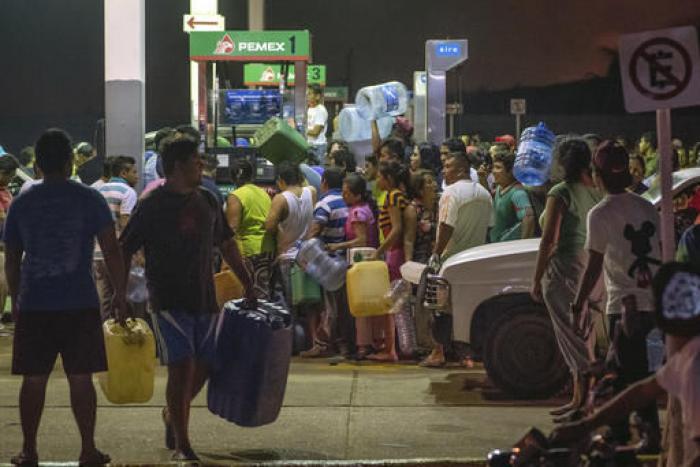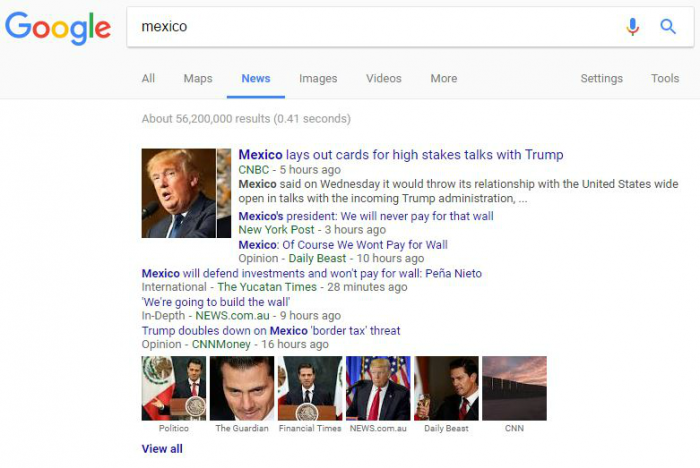 Dear readers, Catholic Online was de-platformed by Shopify for our pro-life beliefs. They shut down our Catholic Online, Catholic Online School, Prayer Candles, and Catholic Online Learning Resources essential faith tools serving over 1.4 million students and millions of families worldwide. Our founders, now in their 70's, just gave their entire life savings to protect this mission. But fewer than 2% of readers donate. If everyone gave just $5, the cost of a coffee, we could rebuild stronger and keep Catholic education free for all. Stand with us in faith. Thank you. Help Now >
Dear readers, Catholic Online was de-platformed by Shopify for our pro-life beliefs. They shut down our Catholic Online, Catholic Online School, Prayer Candles, and Catholic Online Learning Resources essential faith tools serving over 1.4 million students and millions of families worldwide. Our founders, now in their 70's, just gave their entire life savings to protect this mission. But fewer than 2% of readers donate. If everyone gave just $5, the cost of a coffee, we could rebuild stronger and keep Catholic education free for all. Stand with us in faith. Thank you. Help Now >
Media censorship of unrest in Mexico continues, but why?
FREE Catholic Classes
Unrest is spreading in Mexico as censorship of the problems in that country continues. People are protesting high prices for gas, electricity and food. They're also angry over continued corruption between their government and the drug cartels.

News of the unrest in Mexico is starting to trickle into the mainstream media, but only following reports from sites like Catholic Online.
Highlights
CALIFORNIA NETWORK (https://www.youtube.com/c/californianetwork)
1/12/2017 (8 years ago)
Published in Americas
Keywords: Mexico, revolution, riots, gas, patrol, prices, narco-state
LOS ANGELES, CA (California Network) - The people of Mexico have had enough of government corruption, drug cartel influence, and high prices. Since the New Year, millions of Mexican citizens have taken to the streets to protest. Some of those protests are turning violent. Government attempts to quell the violence have failed. Border crossings have been closed several times due to protests. As the situation worsens, a baffling media blackout continues.
The protests started after the New Year after the government announced it would stop subsidizing fuel as a cost saving measure. This caused the price of a liter of gas to spike by 20 percent. Presently, a liter of premium gasoline costs about 18 pesos. A gallon of such gas costs about 70 pesos. At the same time, a full day's pay at Mexico's minimum wage is only 80 pesos.
The high gas prices have made it impossible for some people to go to work. The increased cost is also showing up at the supermarket where food prices are skyrocketing. The Mexican peso continues to fall, especially with the coming of Donald Trump who has suggested transferring jobs from Mexico to the USA, taxing remittances to Mexico, deporting millions of Mexican immigrants who are in the country illegally, and building a wall.

Protests started when the government removed price controls on gasoline, causing the price to spike. However, the problems in Mexico are much greater than gas prices alone.
There are deeper problems which plague Mexico. Government corruption runs quite deep and the drug cartels have turned parts of the country into a literal narco-state.
Mexico is a rich nation with fertile farmland, massive deposits of minerals and oil, and a booming tourist industry. It is home to some of the most incredible beaches in the world. The people of Mexico are industrious and resourceful. Yet government corruption captures much of the wealth the people produce, leaving half of the population in poverty.
Protests are happening each day, but they're not being reported in the U.S. news media. Instead, a simple search of "Mexico" under Google News revealed the top stories all had to do with Donald Trump's pledge to build a wall with Mexico.
Why isn't the media paying attention?
Within the last 24 hours, the topic of unrest in Mexico has gained traction on social media which is forcing mainstream media to provide some highly-spun coverage of the event. The U.S. media is reporting chiefly on the gas prices. The situation is much more complex than gas prices. Only a few outlets have attempted to provide the full picture of what's happening.
The U.S. media does censor news. Among the most commonly censored topics are videos and news associated with terrorism. But other topics are censored as well. There are two kinds of censorship. Hard censorship is where a government orders what can and cannot be seen. This is the most well-known and understood kind of censorship. This kind of censorship is unconstitutional and it is rare, although it has been used in wartime on the basis of national security.
The other kind of censorship is soft censorship, where reporting on certain topics is discouraged either actively or passively. Active, soft censorship involves discouraging reporting on a topic. For example, Google, YouTube and Facebook will not pay ad revenue for coverage of certain topics they deem inappropriate. Another form of soft censorship is to bombard viewers with gossip and non-newsworthy items, or to distract them with viral content and fluff. Soft censorship is rampant in the U.S. media.

Censorship includes soft censorship where the media reports on distracting topics while ignoring the real news of the day. A Google search of Mexico under Google News returned zero results about unrest in that country and instead favored reports on Trump and his pledge to build a wall.
The knowledge the U.S. media censors itself isn't new. Many thinkers have suspected this for a long time. What is baffling is why the unrest in Mexico isn't receiving coverage, despite the fact it has been ongoing for weeks and resulted in the intermittent closure of the border.
It's only possible to speculate at this time, so without evidence it makes no sense to promote any hypothesis. However, one thing is certain, it's not for your benefit or ours that coverage is suppressed.
--- The California Network is the Next Wave in delivery of information and entertainment on pop culture, social trends, lifestyle, entertainment, news, politics and economics.
We are hyper-focused on one audience, YOU, the connected generation.
JOIN US AS WE REDEFINE AND REVOLUTIONIZE THE EVER-CHANGING MEDIA LANDSCAPE.
Join the Movement
When you sign up below, you don't just join an email list - you're joining an entire movement for Free world class Catholic education.

-

- Stations of the Cross
- Easter / Lent
- 5 Lenten Prayers
- Ash Wednesday
- Living Lent
- 7 Morning Prayers
- Mysteries of the Rosary
- Litany of the Bl. Virgin Mary
- Popular Saints
- Popular Prayers
- Female Saints
- Saint Feast Days by Month
- Pray the Rosary
Stop Lying: You Don’t Represent ‘The American People’ — You Represent Your District
Easter 2025: Liberation Day – Time to Reclaim Our Faith, Our Church, and Our Future
Bishop Joseph Strickland’s Letter to President Trump: A Call for Peace in the Middle East
Daily Catholic
 Daily Readings for Tuesday, April 01, 2025
Daily Readings for Tuesday, April 01, 2025 St. Hugh of Grenoble: Saint of the Day for Tuesday, April 01, 2025
St. Hugh of Grenoble: Saint of the Day for Tuesday, April 01, 2025 Prayer for God's Help in Daily Actions: Prayer of the Day for Friday, March 14, 2025
Prayer for God's Help in Daily Actions: Prayer of the Day for Friday, March 14, 2025 Daily Readings for Monday, March 31, 2025
Daily Readings for Monday, March 31, 2025 St. Benjamin: Saint of the Day for Monday, March 31, 2025
St. Benjamin: Saint of the Day for Monday, March 31, 2025- To Perceive Animals as God's Gifts: Prayer of the Day for Thursday, March 13, 2025
![]()
Copyright 2025 Catholic Online. All materials contained on this site, whether written, audible or visual are the exclusive property of Catholic Online and are protected under U.S. and International copyright laws, © Copyright 2025 Catholic Online. Any unauthorized use, without prior written consent of Catholic Online is strictly forbidden and prohibited.
Catholic Online is a Project of Your Catholic Voice Foundation, a Not-for-Profit Corporation. Your Catholic Voice Foundation has been granted a recognition of tax exemption under Section 501(c)(3) of the Internal Revenue Code. Federal Tax Identification Number: 81-0596847. Your gift is tax-deductible as allowed by law.



 Daily Readings for Tuesday, April 01, 2025
Daily Readings for Tuesday, April 01, 2025 St. Hugh of Grenoble: Saint of the Day for Tuesday, April 01, 2025
St. Hugh of Grenoble: Saint of the Day for Tuesday, April 01, 2025 Prayer for God's Help in Daily Actions: Prayer of the Day for Friday, March 14, 2025
Prayer for God's Help in Daily Actions: Prayer of the Day for Friday, March 14, 2025 St. Benjamin: Saint of the Day for Monday, March 31, 2025
St. Benjamin: Saint of the Day for Monday, March 31, 2025

